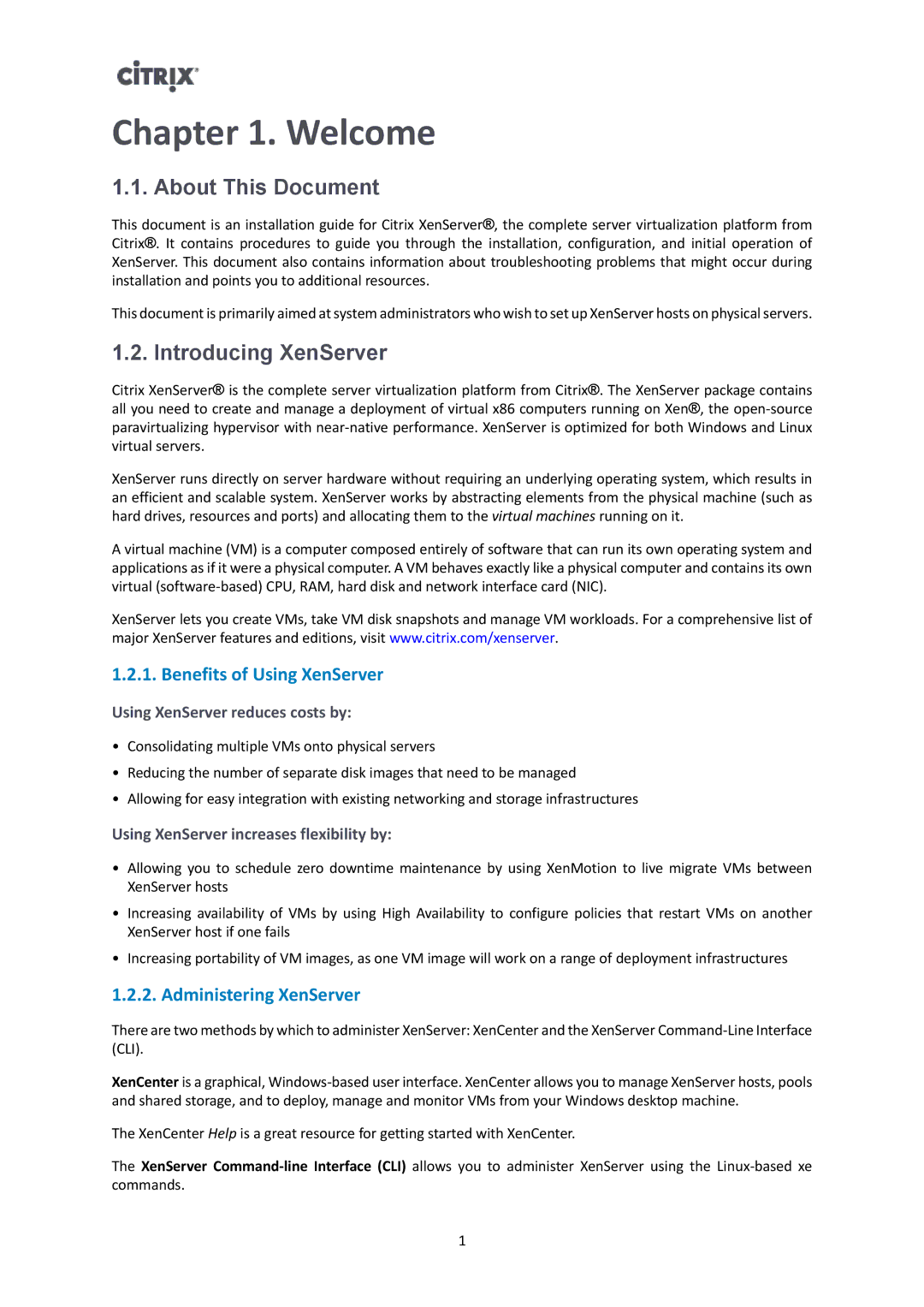Chapter 1. Welcome
1.1. About This Document
This document is an installation guide for Citrix XenServer®, the complete server virtualization platform from Citrix®. It contains procedures to guide you through the installation, configuration, and initial operation of XenServer. This document also contains information about troubleshooting problems that might occur during installation and points you to additional resources.
This document is primarily aimed at system administrators who wish to set up XenServer hosts on physical servers.
1.2. Introducing XenServer
Citrix XenServer® is the complete server virtualization platform from Citrix®. The XenServer package contains all you need to create and manage a deployment of virtual x86 computers running on Xen®, the
XenServer runs directly on server hardware without requiring an underlying operating system, which results in an efficient and scalable system. XenServer works by abstracting elements from the physical machine (such as hard drives, resources and ports) and allocating them to the virtual machines running on it.
A virtual machine (VM) is a computer composed entirely of software that can run its own operating system and applications as if it were a physical computer. A VM behaves exactly like a physical computer and contains its own virtual
XenServer lets you create VMs, take VM disk snapshots and manage VM workloads. For a comprehensive list of major XenServer features and editions, visit www.citrix.com/xenserver.
1.2.1. Benefits of Using XenServer
Using XenServer reduces costs by:
•Consolidating multiple VMs onto physical servers
•Reducing the number of separate disk images that need to be managed
•Allowing for easy integration with existing networking and storage infrastructures
Using XenServer increases flexibility by:
•Allowing you to schedule zero downtime maintenance by using XenMotion to live migrate VMs between XenServer hosts
•Increasing availability of VMs by using High Availability to configure policies that restart VMs on another XenServer host if one fails
•Increasing portability of VM images, as one VM image will work on a range of deployment infrastructures
1.2.2. Administering XenServer
There are two methods by which to administer XenServer: XenCenter and the XenServer
XenCenter is a graphical,
The XenCenter Help is a great resource for getting started with XenCenter.
The XenServer
1
